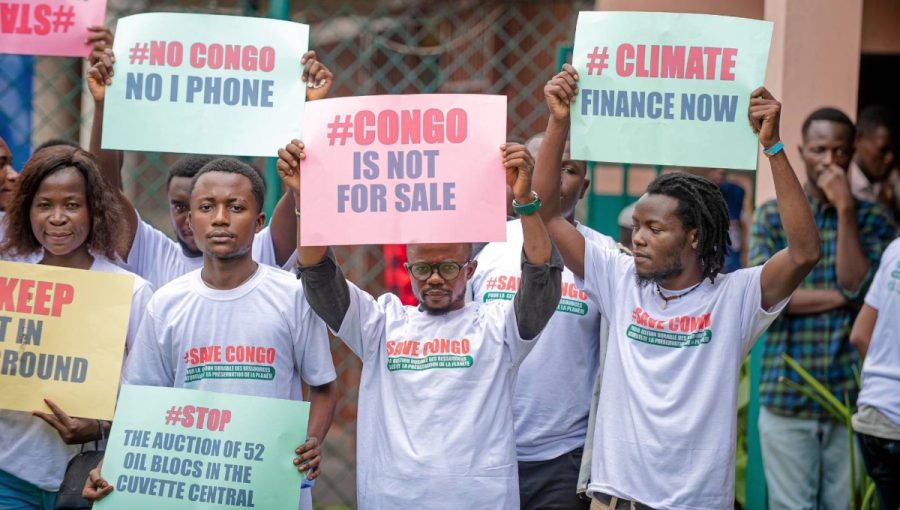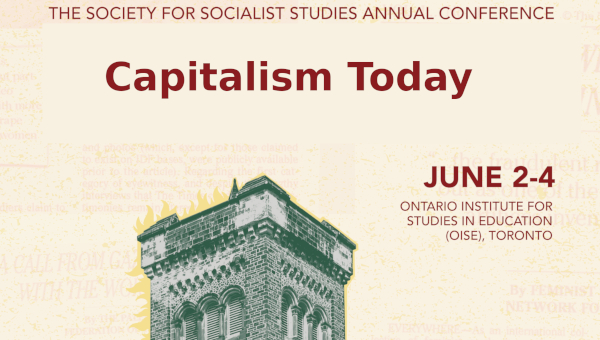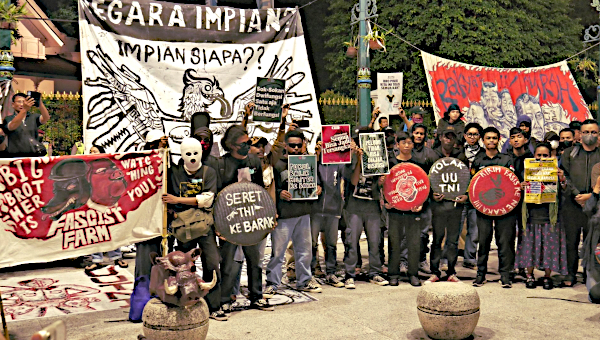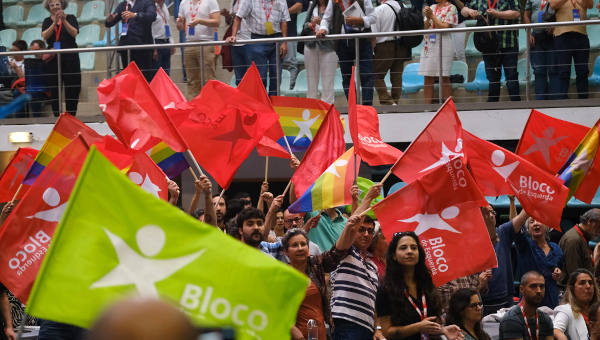Turkey into the Vortex of the Iraq Quagmire
Another breach in U.S. policy
A new dimension of immense importance is being added to the contradictions of U.S. policy in Iraq and the Middle East at large. Turkey, a staunch U.S. ally for over half a century and a NATO member, is threatening to militarily intervene in Northern Iraq, i.e. Iraqi Kurdistan. A resolution was passed by the Turkish parliament in mid-October giving free rein to the government and the Turkish army to enter Northern Iraq whenever deemed necessary within the next twelve months, a veritable multiple entry visa, except that it is not given by the host country! The reason cited is, of course, to smash the PKK (Kurdish Workers’ Party) bases in Northern Iraq in order to put a halt to guerrilla operations inside Turkey. Yet there is a further motive that goes unmentioned: to give a warning to the Kurdish leadership in Iraq, i.e. Barzani and Talabani, for them to rein in any dynamics toward independence and toward making the oil-rich region of Kirkouk an exclusively Kurdish possession. Some currents within the Turkish political establishment even have the fantastical dream of taking Kirkouk and Mossoul, former Ottoman possessions, back.
Turkey and U.S. at odds
The immediate reason behind the threat of military incursion is the escalation of the hit-and-run actions of the PKK. However, the threat has really been in the air throughout 2007. One reason why the escalation is taking place in 2007 is the provision in the U.S.-imposed Iraqi constitution that stipulates a referendum on the political status of Kirkouk this year. Given that Kurds have moved into the city massively after the fall of Saddam, the outcome is a foregone conclusion. The attribution of Kirkouk to the Kurdish formation in Northern Iraq would be a nightmare for the Turkish state since it will guarantee the economic survival of this new formation and strengthen the prospects for its eventual independence. The referendum has been postponed, but is certain to come on the agenda once again in the not too distant future.
The Kurds of Iraq, as well as the central government, have repeatedly protested against the prospect of Turkish military intervention. The U.S. has been diplomatically discouraging, goading Turkey into cooperation with so-called Iraqi authorities and manoeuvring for time. Given the quagmire in which the U.S. finds itself in Iraq, Turkish incursion into the only region relatively protected from constant strife would be an intolerable headache. The Turkish ruling forces find this U.S. attitude extremely annoying. Even Tayyip Erdogan, the Turkish prime minister who constantly curries for U.S. favours, has finally raised his voice against this policy. The people at large have developed remarkable hostility to U.S. policy in the Middle East, some though not all of which may be attributed to anti-Kurdish Turkish chauvinism. All in all, then, serious tension has been mounting between the two close allies.
Lately an aggravating circumstance has appeared on the horizon. A draft resolution condemning the Turkish atrocities against Armenians in 1915 and characterising these as “genocide” was voted in the Foreign Relations Committee of the U.S. House of Representatives. The draft resolution is supposed to be brought for deliberation on the floor of the House within November. Turkish bourgeois public opinion is extremely sensitive on this question. Of course, the events of 1915 do bear clearly the traits of genocide and socialists are duty-bound to press for the recognition of this atrocity as such. However, given the historical record of the U.S. itself on the issue of genocide, extending from the near extermination of Native Americans all the way to the situation in Iraq, the move by the U.S. Congress stands out as an extreme case of insolence. The U.S. administration, including Bush, Condoleezza Rice and Pentagon chief Robert Gates in person, as well as the Zionist lobby in the United States and the state of Israel, have been intervening vigorously in favour of the Turkish state and the draft resolution seems pretty much killed at the time of writing.
Leaving aside the discussion of the Armenian resolution, one can sum up the essence of the rising tension between the two allies as another contradiction of present U.S. policy in the Middle East, deriving from its somewhat naive expectation of allying itself simultaneously with Turkey and the Kurds of Iraq. Turkey, having subjected its own Kurds to ferocious oppression all throughout the republican period, fears any inkling of autonomy or independence for the Kurds elsewhere in the Middle East like the plague. Turkey is an extremely important ally of the USA. The Kurds, in contrast, are the only force that the U.S. can rely on for unwavering support in Iraq. Hence the tension that leads to a confrontation between not only the Kurds and Turkey, but also between Turkey and the USA.
One can gauge the absurdity of the situation the U.S. finds itself on the basis of the following fact. Three large states line up the northern frontier of the Middle East, connecting it to that other oil-rich and tense region that is the Caucasus: Iraq, Iran and Turkey. The U.S. is at war with the first, threatening the second with war, and is now at loggerheads with the third!
Temporary realignment in Turkish politics
Turkish domestic politics had been marked throughout the current year by a ferocious fight between the two wings of the ruling classes, the semi-Islamist wing led by the AKP (Justice and Development Party) government and the Westernist-secularist wing under the political hegemony of the powerful military. This created a first earthquake in April, when the army stepped in through a pronunciamiento and prevented Abdullah Gul, number two in the AKP hierarchy, from being elected president of the republic by the solid AKP majority in parliament. (Turkey has a parliamentary regime, but the president wields certain powers that make this position much more than symbolic.) The AKP saved face by declaring early elections to be held in July, which proved to be a landslide in its favour. Turkey thus returned back to square one, with the new parliament effectively electing Gul for president. The military refrained from intervening this time around, but only to bide time, gather its forces and prepare for a future blow.
Having become the target of such a serious attack from the military and its henchmen, the AKP came to be regarded by some on the left as an authentic democratic force. It also had a tactical line that visibly differed from the purely belligerent approach of the military and its supporters on the Kurdish question, which created illusions among the ranks of the Kurdish movement as well. The recent policy adopted by the AKP regarding the prospect of military incursion into Northern Iraq exposes the true nature of this bourgeois party for all to see. Having forced circumstances by electing someone from its own ranks as president, the AKP has probably decided attacking the Kurdish movement would be a quid pro quo that would allay the fears of the Western-oriented wing of the Turkish bourgeoisie and the army regarding this election. However, even today the rift between the two wings has not been mended and this deep division of the Turkish ruling classes is decidedly a weakness in the delicate period ahead. It is not to be doubted, moreover, that once the common “enemy” has been dealt with, the rivals will quickly turn to grab each other’s throats. Not only U.S. imperialism but its powerful Turkish ally is also in deep trouble.
Prospects for the Kurdish question
For a correct policy regarding the Kurds in the Middle East, socialists have to distinguish clearly between the Kurds of Iraq and the Kurds of Turkey. The attitude of the U.S. to the Kurds of Turkey starkly contrasts with its attitude to the Kurds of Iraq. While Barzani and Talabani have enjoyed lavish support from the U.S. since 1991, it was this same country that detained and delivered to Turkey the leader of the PKK, Abdullah (Apo) Öcalan, in 1999, the single most important blow to the guerrilla movement. Throughout the more than two decades of war against the PKK, Turkey has enjoyed benevolent support and arms from its NATO allies for its ruthless tactics. The new orientation of attempting to crush the PKK will lead to a lot of violence and bloodshed and the Kurdish people will be the first victim as in the earlier episodes of the war. It is highly likely that the DTP (Democratic Turkey Party), the Kurdish Herri Batasuna, will be evicted from parliament for opposition to the strong arm tactics of the government and the military. The hysteric chauvinistic atmosphere that has been whipped up since 2005 may even lead to a massacre of Kurds and/or civil strife, if not outright ethnic civil war. Already tens of thousands of Turks have been demonstrating daily all around the country voicing a chauvinistic outpour of wrath on the PKK and a hardly disguised hatred against Kurds, and fascist mobs have attacked and burned provincial buildings of the DTP in at least a score of cities and towns. And on this entire question the U.S. will, in all likelihood, ultimately side with its long-time ally, despite the frictions of the moment.
For Turkey is too important an ally to be sacrificed. With a population of over 70 million, it wields the most highly industrialised economy of the Middle East after Israel, the second biggest armed forces of NATO, the third military power of the region after Russia and Israel. Since the beginning of the war on Iraq, 70 percent of U.S. air cargo headed for Iraq has gone through Turkey, as has about one-third of the fuel used by the U.S. military in Iraq. Over the last two decades Turkey has become close allies with Israel. And its military, economic and political power is needed against Iran and, in the longer run, in the Caucasus and Central Asia. And yet U.S. policy in Iraq is leading towards a rift with precisely this important ally!
The question really is whether a modus vivendi can be established between Turkey and the emerging Kurdish formation in Northern Iraq. Turkey is economically becoming more and more dominant over this formation. Foreign trade between the two entities has reached the level of USD 3 billion and Turkish contractors have undertaken more than USD 4 billion in construction projects. A growing section of the Turkish establishment is pressing for a change of policy, advocating benign Turkish protection and tutelage over this new formation (this is the formula of the “Second Republic” in Turkish political parlance). If the military, the most rabidly anti-Kurdish force in Turkish society, can be won over to this policy, even Barzani and Talabani may support the military assault on the PKK by the Turkish state, as they repeatedly did in the 1990s. This would have a disintegrating effect on the PKK. Already, Barzani’s prestige among and influence on Turkey’s Kurds has become remarkable. The Kurdish bourgeoisie, cherished for some time now by the PKK, is turning its back more and more on the movement. The surest sign is the recent series of public interventions by the chambers of industry and commerce and other employers’ associations of the Kurdish region. The high number of votes polled by the government party certainly is, in the light of this development, a mirror of what is happening on a day-to-day basis.
Solidarity with the Kurds of Turkey
The fact that Barzani and Talabani are staunch supporters of U.S. imperialism should not blind us to the plight of the Kurds of Turkey. It is true that the PKK and the DTP have lately turned markedly to the right. But the Marxist movement, indeed the whole workers’ movement should stand in support of the rights of the Kurds of Turkey. This includes their right to self-determination, defending the deputies of the DTP in the face of attacks and expulsion from parliament, standing against military operations by the Turkish army in Northern Iraq, and fighting physically if necessary, should the Kurdish people become the object of mass-scale lynch attempts in the hands of mobs led by Turkish fascists. Only on this basis can the mighty Kurdish movement be won once again as in the past to a principled alliance with the socialist movement.
The international workers’ movement should also stand up against an attack by Turkey on the Kurdish formation in Iraq, despite the full support extended so far by their leaderships to U.S. imperialism. For that would not be an attack against imperialism as Turkey itself is a staunch ally of imperialism. That kind of war would only bring face to face one of the most oppressed peoples of the Middle East, second only to Palestinians, and a state which has long been their oppressor. •
STOP TURKEY ATTACKING IRAQ
A motion has been passed by the Turkey’s parliament to authorise the Turkish army to officially enter Iraq. This threatens a major escalation of the conflict in the region. It creates the risk of a sharpened civil war in Northern Iraq. An attack – invasion will bring misery and death to hundred of thousands of people.
Using the excuse of a recent landmine attack in which 13 Turkish soldiers died, the Turkish army has already started massive military operations in South East Turkey and there are reports that civilian villages in Northern Iraq have been hit.
However, the past 18 months have seen a succession of provocations by Turkey’s “deep state” to prepare the ground for such an attack. Many civilians, mostly Kurds, and many children have died in these incidents, which are blamed on the PKK. In one famous case, members of the security forces were caught red-handed planting bombs.
The recent election to the Turkish parliament of 20 independent Kurdish MPs offered hope of a peaceful political solution to the Kurdish problem in Turkey. An attack on Iraq will sink this hope and mean death and destruction for the Kurdish people of Turkey as well. A Turkish incursion will be a further step down the road to chaos and destruction created by Bush and Blair’s invasion of Iraq.
We call on the anti-war movement all over the world to stand out against this very dangerous escalation of the war in Iraq.
No to a Turkish invasion of Iraq! All troops out of Iraq!
Sign the Declaration; put it to your anti-war group.
Please state your occupation and the anti-war, anti-globalisation, or other campaigns you are involved in.
Signatures to: declaration@stopincursion.net web: www.stopincursion.net
General Inquires: Turkan Uzun, turkanuzun@yahoo.com
Called by – Personal Capacity: (alphabetically):
- Necati ABAY (Journalist)
- Inci AKDENIZ (Pensioners Association)
- Kadir AKIN (Socialist Democracy Party-SDP)
- Ahmet ARGUN (Education Trade Union-Egitim Sen)
- Mustafa C. ARSLAN (Archaeologue, Greens)
- Metin AYCICEK (Journalist, Writer)
- Ummuhan Kursun BAHAR (Professionals Association-TMMOB)
- Fikret BASKAYA (President of Turkey and Middle East Forum Foundation-Free University)
- Celal BASLANGIC (Journalist)
- Ayse BATUMLU (Lawyer, Peace Initiative, Socialist Democracy Party-SDP)
- and others.





